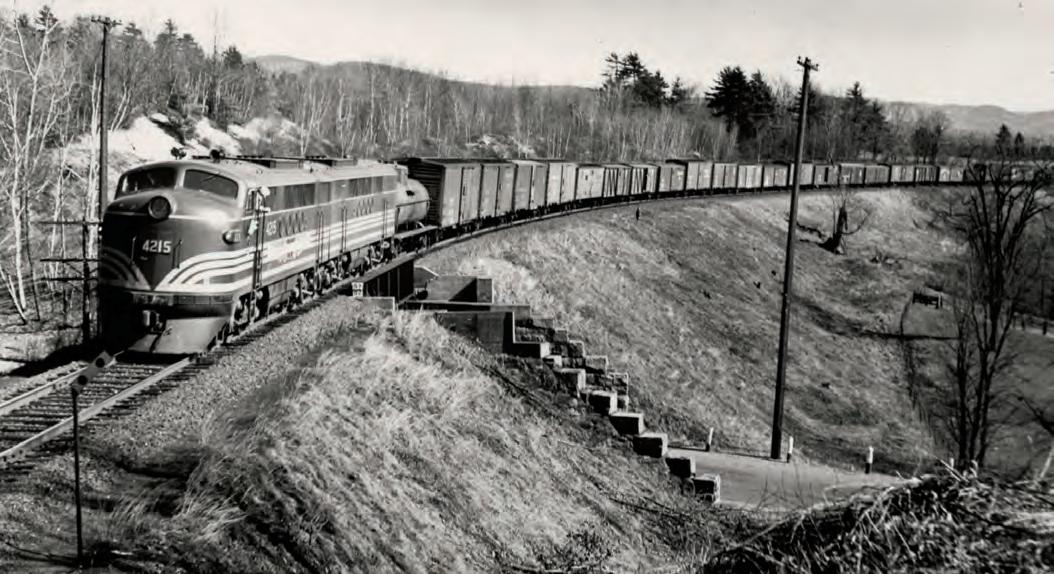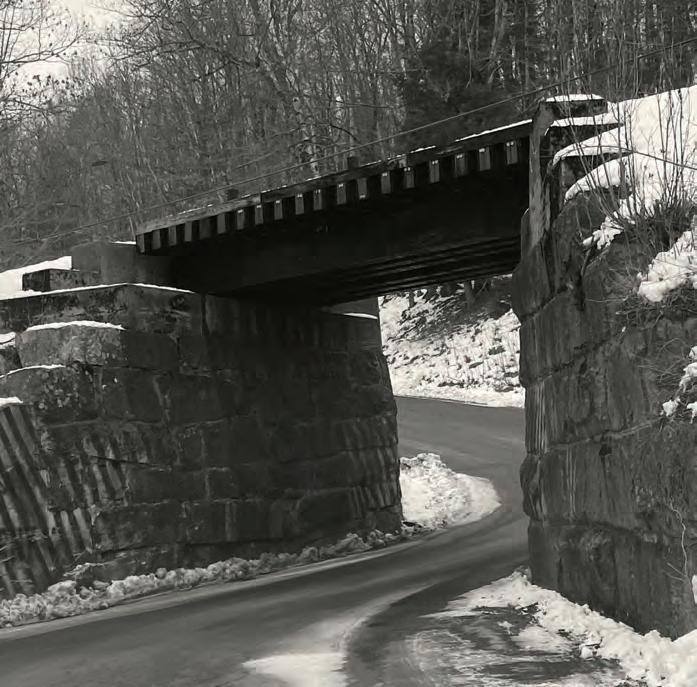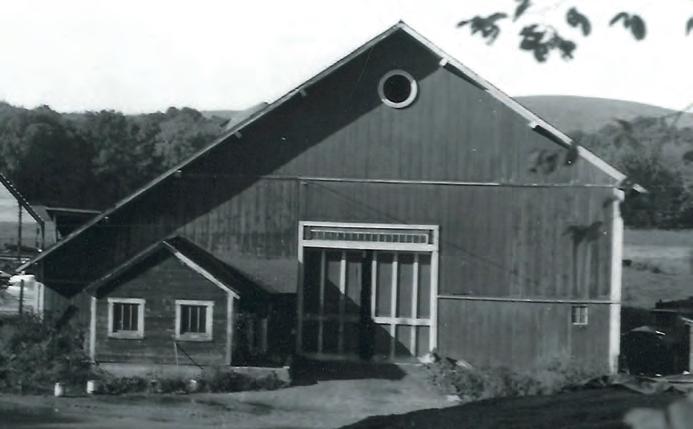
4 minute read
Cattle Thieves at Hobo Junction
In a rugged border town, sometimes you can’t wait for the police
BY MARSHALL HUDSON
I’m in the southwestern-most corner of New Hampshire, where the border town of Hinsdale butts up against the state lines of both Vermont and Massachusetts, and I’m reading an old newspaper clipping that tells the story of a crime that took place here in 1965. The farm and barn described in the newspaper article are gone now, but in the 1960s, Hinsdale had a few working dairy farms up and down the Connecticut River. Hinsdale also had busy papermills along the Ashuelot River, but much of the commerce in this small border town was tied to activities that were restricted or illegal just across the border in the neighboring states. The sale of liquor, cigarettes, fireworks and NH sweepstakes tickets generated a lot of commerce, as did betting on racehorses at the Hinsdale racetrack.
The Fort Hill Railroad line came across the border from Northfield, Massachusetts, briefly cut through Vernon, Vermont, and then entered the southwestern corner of Hinsdale. Turning north, it followed the bends of the Connecticut River until it reached Dole Junction. Here, the rail line splits in two. The northwestern track continued following the river, heading for Brattleboro and Bellows Falls, Vermont. The northeastern branch of the fork went to the Hinsdale Depot and then on to Ashuelot and Keene hauling freight for all the mills in the southern Cheshire County towns. Dole Junction was not an important passenger terminal or freight depot, just a small switching station with a couple of employees that oversaw the shuttling of boxcars from one track to the other. In the early 1900s there was also a telegraph office at this tiny way station, but it was closed and gone by the mid-1940s.

Ticketless hobos hopping a free ride aboard the boxcars were not welcomed at Dole Junction, so the tramps disembarked the moving train before it reached the switching station, jumping off about a mile south of the junction. Here, the freight trains slowed to a crawl as they navigated through an “S” curve when the
Tracks
crossed over the Northfield road. There were two railroad overpass bridges here, impressive granite block abutments topped by massive steel girders that supported the weight of the freight trains and allowed automobiles to pass below them through a narrow opening. Frustrated truck drivers with tall loads worried about headroom when squeezing under these overpasses. Locals wryly referred to the area as “Hobo Junction” because of the ticketless riders leaping off the northbound trains or laying low while waiting to hop aboard a southbound train before it picked up speed.
A family dairy farm operated at Hobo Junction in the 1960s, situated between the two railroad overpasses. The fertile river floodplain was good for growing hay and silage corn, and the farmer had a barn full of hay and Holsteins. The farmer’s home was up the road and out of sight of the barn, so hobos who thought no one was around would sometimes attempt to spend the night sleeping in the hayloft. This usually didn’t work out for them, as farm chores started at 4 a.m. and the sleeping-butuninvited guests were rousted and told to move along.


The old newspaper clipping tells the story of a thwarted cow theft at this barn late one night. The farmer’s son, Rodney, had just seen a cowboy movie on the big screen at the Northfield drive-in outdoor movie theater. Passing the barn on his late-night return home, he noticed a light on in the barn. Thinking that hobos had broken into the barn and needed to be run off, he started to turn in to the dooryard — but he quickly changed his plan when he saw a truck backed up to the barn door and another truck parked nearby in waiting. Rodney drove past the barn, parked in a cornfield and slipped through the corn rows coyote-like, back to the barn. A broken window revealed how the thieves had gained entry. Peeking through a different window, he saw four men with a rope around a protesting heifer, attempting to move her to the truck. A bawling calf was already tied up in the truck.
Stealthily moving away from the barn and back to his car, Rodney stopped long enough to lift the keys out of the ignition of one truck and let the air out of a tire on the other. He also read the license plate numbers, and when he got back to his car, wrote them in the dust on his dashboard with his index finger. Scooting home, he awakened the rest of the family, and they called the police.
In those days the chief of police was a part-time position, elected every year along with all the other town officials. Police officers were also part-time, and you called them at their homes or full-time employment when you needed them. The chief worked full-time as a used car salesman and the responding officer on-call was the janitor at the high school. Both were in bed asleep, and their response time would be slow. Rodney and his family drove back to the barn and confronted the four stranded rustlers who were busy changing tires and searching pockets for missing car keys. Two took off running. Two didn’t have a chance to. The police arrived and apprehended the two that were detained by the less-thanhappy farmers, then went searching for the two on the run. The officers stopped two hitchhikers nearby, scurrying for the border and trying to get across the state line. When questioned by the officers, the hitchhikers said they “had been out hunting” … at night … in the dark … without a hunting license … on a road. The hitchhiking hunter story didn’t add up.
The newspaper clipping indicates all four were found guilty at a special session of the Municipal Court held just a few days later. The judge ordered the men to pay a $75 fine for theft of the calf, and $5 each in damages for the window broken to gain entry. The judge also ordered a “mittimus” be served on them by the county sheriff. I had to look that one up. Mittimus means: a warrant issued to the sheriff by the court, commanding the delivery to prison of the persons named in the warrant. In this case, it also meant a six-month sentence at the house of corrections in Westmoreland. Cattle thieves at Hobo Junction were not welcomed in this southwestern border town. NH











